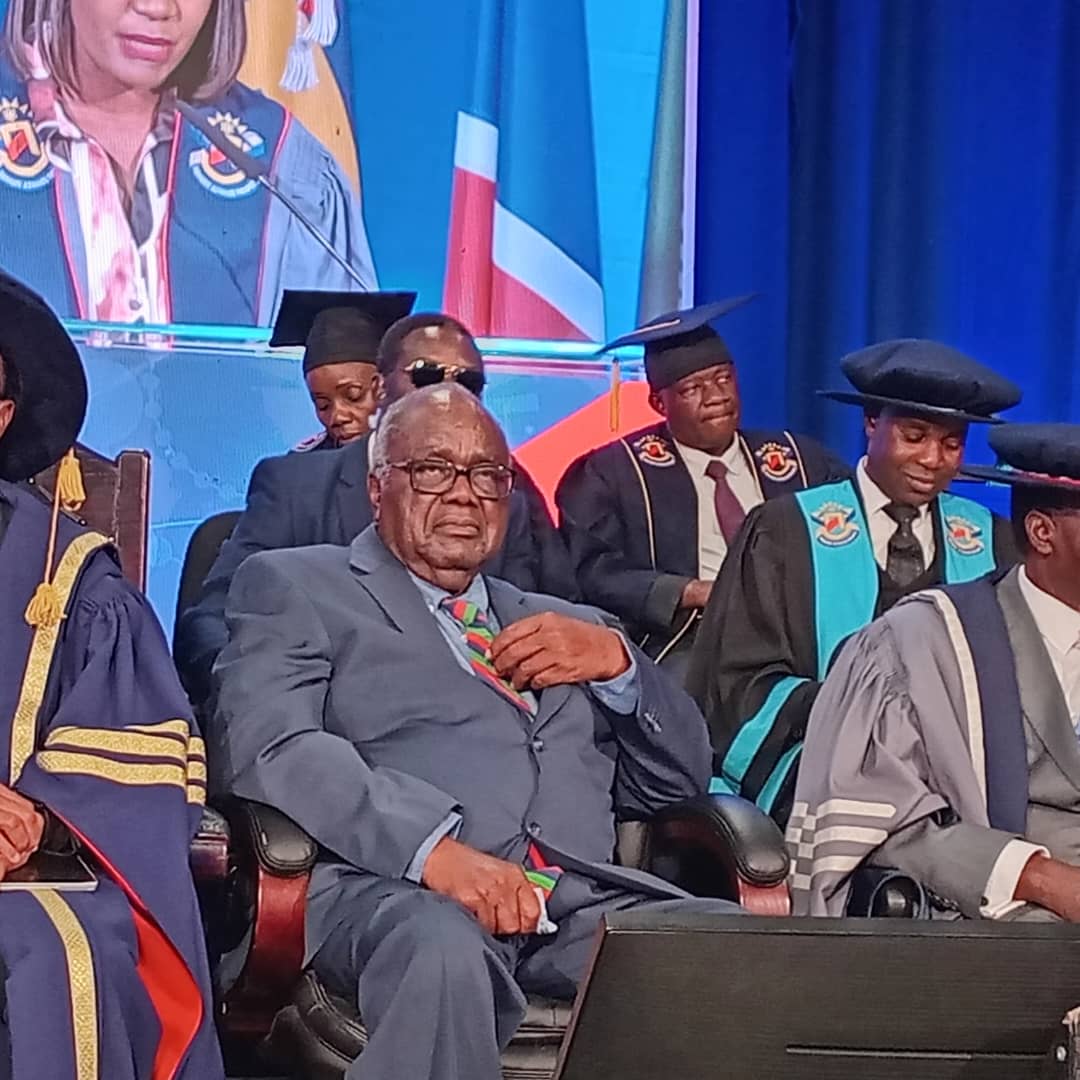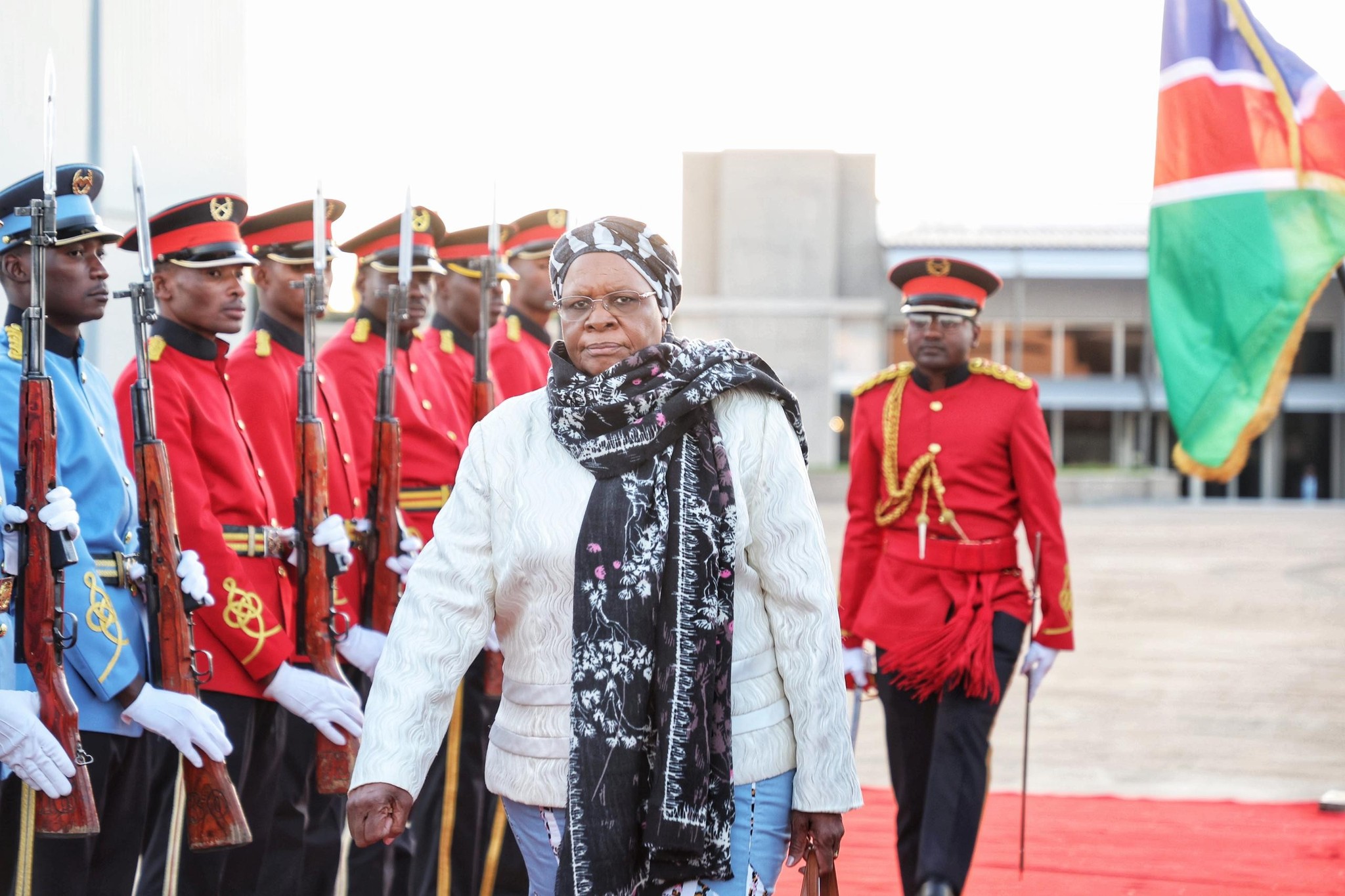THE issue of “jobs for comrades” caused a furore in the National Assembly yesterday, with Swapo MPs denying that civil servants were appointed to jobs based on their tribal affiliation and political background.
Tsudao Gurirab of the Congress of Democrats kicked off the day’s discussion on a motion to debate ethnicity and tribalism by insisting that Government appointed people in the civil service, especially top positions, only if they had been part of the liberation struggle. “Our purpose is to address the bigger and pertinent question of nation building as we believe that it serves no one’s interest to live in denial,” said Gurirab.Finance Minister Saara Kuug-ongelwa-Amadhila was quick to try and shoot down the allegation.She maintained that those who had been in the struggle had only been appointed to top posts because they had “accumulated vast experience” during this time, which made them more “attractive” employees.To back her argument, Kuug-ongelwa-Amadhila used the national defence force as an example, saying former Koevoet and SWATF soldiers had been deployed in the NDF because of their experience and not because they had been freedom fighters.The DTA’s Phillemon Moongo also insisted that Swapo had allegedly previously announced in the National Assembly that top positions in Government institutions would only be filled with party cadres.Youth and Sport Minister John Mutorwa said he was not aware of such an announcement, adding that in bringing the motion to the House, the DTA’s McHenry Venaani was insinuating that Government was violating the supreme law of the land.”This is a serious charge,” he said.”The Swapo Government cannot make and apply policies that contradict the letter and spirit of the Constitution and get away with it.”Mutorwa encouraged members of the public who felt aggrieved by appointments in the public and private sectors to raise the matter with the relevant supervisors and heads of those Ministries.Swapo MPs tried to fend of criticism by charging that the composition of opposition parties appeared to reflect that the parties only represented a certain group of people.”Should the Namibian public take a cue from these parties about how the Government would look if these parties were to come to power?” Kuugongelwa-Amadhila asked the UDF’s Michael Goreseb.”Can’t these parties find one credible person to bring to Parliament to make their party look more diverse?” Goreseb maintained that the Affirmative Action policy should allow white people to compete fairly with other racial groups for jobs.This, he said, was not happening at present, and “comrades” were being favoured for jobs even if they were not capable of performing the best.”You only want to vilify Swapo while you are doing the same thing,” Works Minister Joel Kaapanda charged.He claimed that the UDF-controlled Usakos Town Council had “refused” to allow Swapo members to take up positions on the council after last year’s Local Authority Elections.In support of the motion, Goreseb called for a national task force to investigate tribalism and ethnicity in Namibia, maintaining that those interviewed for jobs in the civil service were asked “what tribe they are from”.Presidential Affairs Minister Albert Kawana and Deputy Prime Minister Libertina Amathila asked him to supply evidence to back up the remark.”We want to expose those people.That is a very serious allegation in an independent Namibia,” said Kawana.Added Amathila: “I’ve never heard of this.We must really expose this.This is very, very serious”.Speaker Theo-Ben Gurirab intervened, saying Goreseb was making a serious allegation which required elaboration.”You need to provide more information.We are all very interested to know when this took place and who was involved,” said Gurirab.In his defence, Goreseb maintained that he “had been a victim of the system” and was “in touch with the grassroots”.Kuugongelwa-Amadhila maintained that opposition parties were perpetuating accusations of ethnicity and tribalism to further their own political agenda.She claimed they aimed to instil fear in the youth and lead them to believe that they were “victims in their own country”.Prime Minister Nahas Angula attempted to stem the debate, calling for Namibians to be “positive”.”When we are talking about ethnicity, we must know we are scratching a raw wound that we may not be able to heal,” he said.Instead, he said, the House should discuss issues that brought disparity among Namibians, such as poverty, unemployment and the unequal distribution of wealth.He said Namibians needed to be “sensitive to our diversity”.”People should shout high and loud if they think they have been discriminated against because of their background,” he said.”Our purpose is to address the bigger and pertinent question of nation building as we believe that it serves no one’s interest to live in denial,” said Gurirab.Finance Minister Saara Kuug-ongelwa-Amadhila was quick to try and shoot down the allegation.She maintained that those who had been in the struggle had only been appointed to top posts because they had “accumulated vast experience” during this time, which made them more “attractive” employees.To back her argument, Kuug-ongelwa-Amadhila used the national defence force as an example, saying former Koevoet and SWATF soldiers had been deployed in the NDF because of their experience and not because they had been freedom fighters.The DTA’s Phillemon Moongo also insisted that Swapo had allegedly previously announced in the National Assembly that top positions in Government institutions would only be filled with party cadres.Youth and Sport Minister John Mutorwa said he was not aware of such an announcement, adding that in bringing the motion to the House, the DTA’s McHenry Venaani was insinuating that Government was violating the supreme law of the land.”This is a serious charge,” he said.”The Swapo Government cannot make and apply policies that contradict the letter and spirit of the Constitution and get away with it.”Mutorwa encouraged members of the public who felt aggrieved by appointments in the public and private sectors to raise the matter with the relevant supervisors and heads of those Ministries.Swapo MPs tried to fend of criticism by charging that the composition of opposition parties appeared to reflect that the parties only represented a certain group of people.”Should the Namibian public take a cue from these parties about how the Government would look if these parties were to come to power?” Kuugongelwa-Amadhila asked the UDF’s Michael Goreseb.”Can’t these parties find one credible person to bring to Parliament to make their party look more diverse?” Goreseb maintained that the Affirmative Action policy should allow white people to compete fairly with other racial groups for jobs.This, he said, was not happening at present, and “comrades” were being favoured for jobs even if they were not capable of performing the best.”You only want to vilify Swapo while you are doing the same thing,” Works Minister Joel Kaapanda charged.He claimed that the UDF-controlled Usakos Town Council had “refused” to allow Swapo members to take up positions on the council after last year’s Local Authority Elections.In support of the motion, Goreseb called for a national task force to investigate tribalism and ethnicity in Namibia, maintaining that those interviewed for jobs in the civil service were asked “what tribe they are from”.Presidential Affairs Minister Albert Kawana and Deputy Prime Minister Libertina Amathila asked him to supply evidence to back up the remark.”We want to expose those people.That is a very serious allegation in an independent Namibia,” said Kawana.Added Amathila: “I’ve never heard of this.We must really expose this.This is very, very serious”.Speaker Theo-Ben Gurirab intervened, saying Goreseb was making a serious allegation which required elaboration.”You need to provide more information.We are all very interested to know when this took place and who was involved,” said Gurirab.In his defence, Goreseb maintained that he “had been a victim of the system” and was “in touch with the
grassroots”.Kuugongelwa-Amadhila maintained that opposition parties were perpetuating accusations of ethnicity and tribalism to further their own political agenda.She claimed they aimed to instil fear in the youth and lead them to believe that they were “victims in their own country”.Prime Minister Nahas Angula attempted to stem the debate, calling for Namibians to be “positive”.”When we are talking about ethnicity, we must know we are scratching a raw wound that we may not be able to heal,” he said.Instead, he said, the House should discuss issues that brought disparity among Namibians, such as poverty, unemployment and the unequal distribution of wealth.He said Namibians needed to be “sensitive to our diversity”.”People should shout high and loud if they think they have been discriminated against because of their background,” he said.
Stay informed with The Namibian – your source for credible journalism. Get in-depth reporting and opinions for
only N$85 a month. Invest in journalism, invest in democracy –
Subscribe Now!










